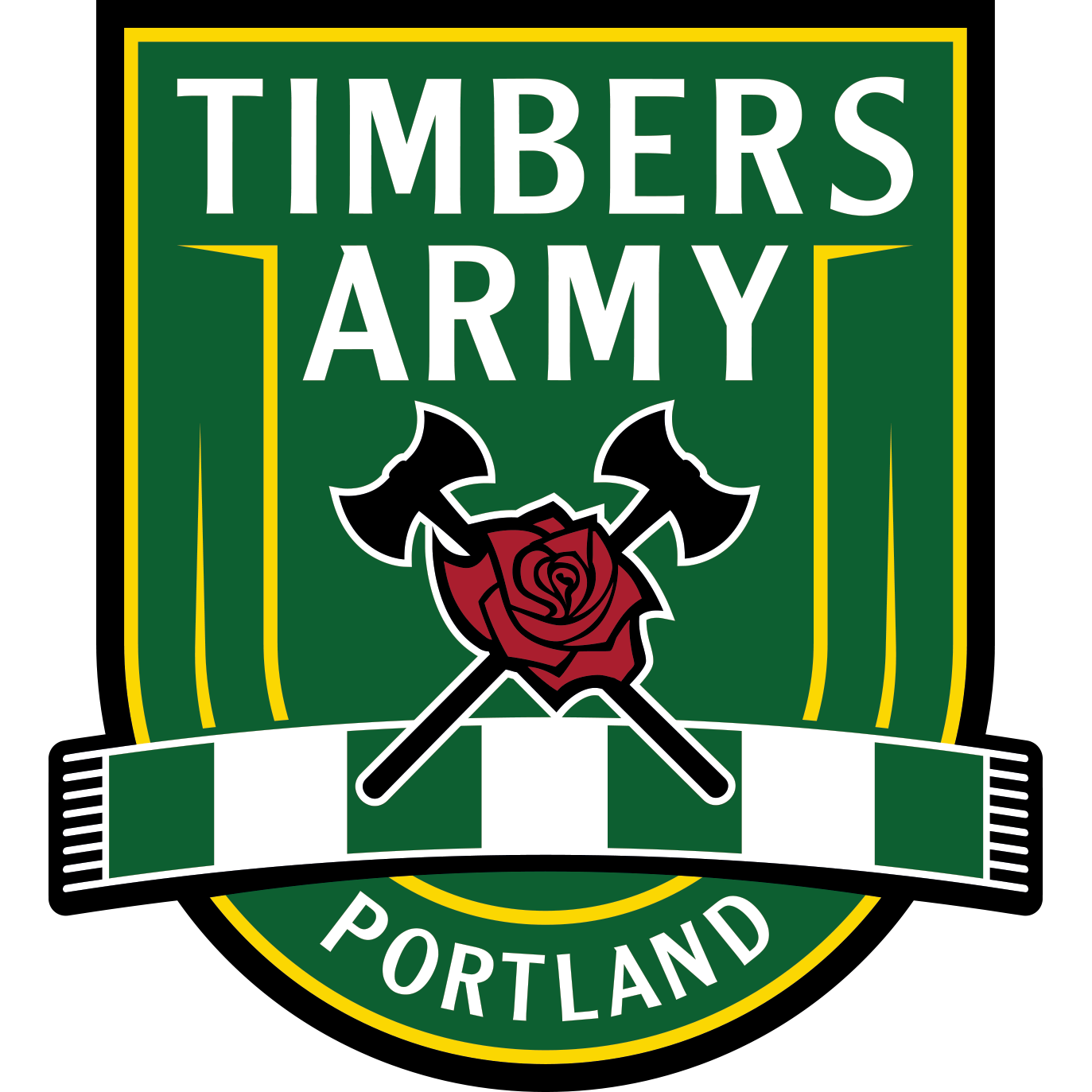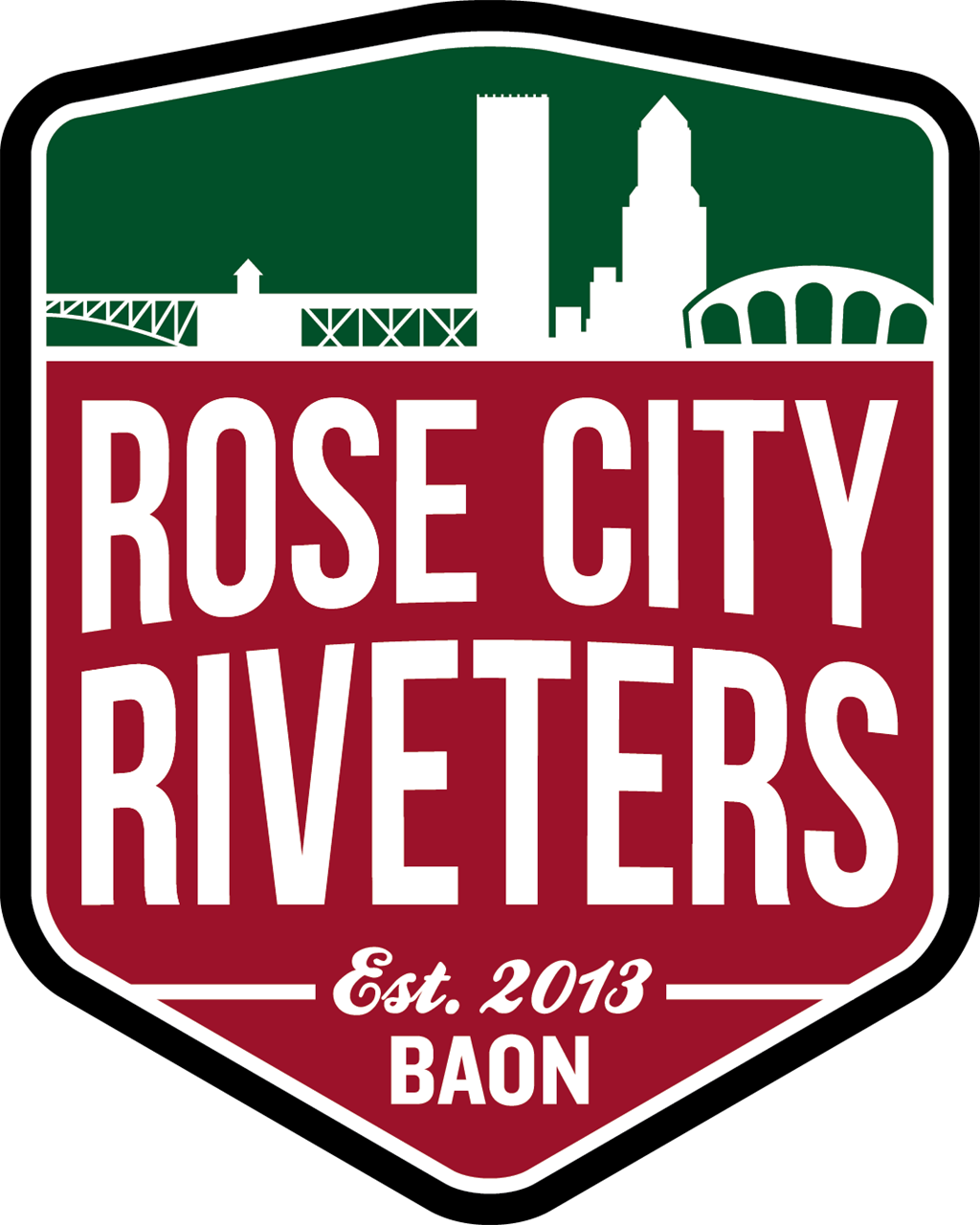The following is a post from Sheba Rawson.
I have been struggling to come to terms with what has happened between the supporters I love and the front office of the team I love. How did we get to this place? Why are we in such a contentious space — all over a flag with a circle and three arrows on it?
On its face, it seems absurd. As a 107IST board member since 2011, I’ve had the privilege of working with the same small core of front office members. Over the years, we have had a mostly positive working relationship. They are good humans; I believe that on a personal level they do generally share our ethos in the sense that I firmly believe they are opposed to racism, fascism, white nationalism, homophobia, transphobia, and xenophobia. And given the current political climate, I’m sure they agree, generally speaking, that there are horrifying things happening out there in the wide world that they oppose. Hate crimes against LGBTQ+ folks, immigrants, and people of color are on the rise. Children are being separated from their parents at the border and put in cages under horrific conditions. Hate groups march in our very own streets. They agree that a philosophy that relies on nationalism, racism, rejection of the other, and silencing of dissent is abhorrent. And yet they refuse to let us fly a flag that is the very symbol of resistance to those beliefs.
How did we get here?
As I reflected and tried to wrap my brain around it, I thought about the working relationship we as 107IST board members and the front office have had over the years. It has mostly been positive and productive, especially when we focus on things that we both have in common: We want the men (and since 2013, the women) on the pitch to be successful, and we both care about the community. When we focus on those things, we generally get a lot done. Look at the front office work with Operation Pitch Invasion. Look at the space we have built, grown, and preserved over time in the stadium to provide passionate support for our teams, with smoke, tifo, drums, trumpets, and flags. These things work best when we are of common purpose. We are extremely grateful to have such a positive working relationship. It allows both the club and the supporters to work together toward unprecedented success.
Then I thought about the times we have had our run-ins. The time very early in our MLS history that the front office sold a front office scarf with “No Pity” on it. The time that people popped flares in Rio Tinto and received match bans at home, while at the same time MLS used a picture of the spectacle in the stands in their marketing. The time several years back when the front office briefly floated the idea of carving out a slice of the North End to be reserved seats. The time a couple of years back that a front office line of clothing came out with a couple of items that looked uncomfortably close to items from our own No Pity Originals line.
And then it hit me: Nearly every time we have gone sideways with the front office, it is because — even though we both love our teams and love our town — there are times when we do not share common purpose.
Our purpose is to be the greatest football supporters the world has ever seen. We support soccer in and around Portland, from the grassroots to the highest professional level. And we support Team, Town, and Timbers Army & Riveters.
But the teams themselves — the Timbers and the Thorns — are businesses. Their purpose is to operate in such a way so that they can remain in business.
These purposes do not always align. Each purpose has merit, and often, the two overlap in wonderfully satisfying ways. But sometimes, as now, they do not.
I am grateful for their existence: If they hadn’t been here when they were, the USL Timbers might have ceased to exist. Their purpose — and there is no shame in their freely admitting this — is to make a profit.
And you know what? Sometimes that purpose is at odds with ours, which is totally normal and to be expected. There will always be times when a business owner or business group sees a way to maximize short-term profits that may or may not coincide with the interests of the people who frequent that business. That is when we as supporters feel the rub, and that is when we get into hard spaces that we have to work our way out of in order to get back to the strong, solid, common ground we have, which is supporting the teams and the town.
When I thought about it THAT way, it strangely hurt a lot less.
This isn’t personal, Sheba. It’s just business.
The most obvious evidence of this when it comes to the Iron Front symbol is that it is perfectly acceptable to wear on one’s person in the stadium, just don’t fly it on a flag or hold it up on a banner. The official statement Monday made this point crystal clear to me:
For obvious reasons banners and signs are widely visible to the broader stadium and television audience and thusly fall under a different set of guidelines.
“Obvious reasons.” What could those “obvious reasons” possibly be?
There’s only one answer: television audiences. You can’t easily discern the Iron Front logo on a T-shirt on your TV screen at home or at the local sports bar, but you can definitely make it out on a 9x12 flag waving in the stands.
And when you think of it that way, all the rest of the noise falls away. Clearly, the front office and/or the league has decided that it is bad for business to have the Iron Front image visible on TV. What led to that decision? Who knows. Maybe some right-wing owner or league business partner saw the flag waving in some B-roll of the Timbers Army used in some MLS commercial and vaguely remembered it from some Fox News scare piece he’d seen. Maybe somebody pointed it out to some owner or league official when Seattle folks got booted for flying their “Anti-Racist, Anti-Fascist, Always Seattle” banner in Vancouver awhile back. Whatever the reason, sometime between 2017 and 2018 somebody with money saw that flag flying in our stands, and they didn’t like it. And at that point the league, and by extension our front office, had to make a business decision — and that is exactly what the Iron Front flag ban clearly is.
Here’s the thing about business decisions: They are usually gambles, based on predictions of how the market will react. I don’t envy business people. They have to make tough calls all the time. Will the public buy more of our product if we do x as opposed to y? How much should I invest in the business in the short term in hopes of yielding a bigger return later? Is this the right price point? How do I appeal to the widest audience?
Here’s the other thing about business decisions: If they look like they are wrong, you can always reverse them, because they aren’t actually based on moral principles. They are based on what is best for the bottom line. And again, there is no shame in a business admitting that this is what they do.
Once I thought of the Iron Front decision in this light, it was a lot easier to think it through. The decision to not allow the flag to fly didn’t have to have anything to do with deeply held moral values (though I do believe the individuals working in the front office hold strong, positive moral values): This was about the bottom line. Someone somewhere thinks that flying the Iron Front flag is bad for business.
And if that is true, then our course of action is also clear.
Look, I LOVE working with the front office on behalf of supporters. Our front office is TREMENDOUS to work with. They have afforded us opportunities that few supporter groups can claim. Opportunity to set up pretty complicated riggings for tifo. Smoke. Drums. Trumpets. Capo stands. And, most importantly, a good-sized chunk of the stadium that is general admission, which allows for new folks to be welcomed in with friends, to learn chants and song alongside more experienced people, to learn to love the game alongside its most ardent supporters, and to become Timbers Army and Rose City Riveters. To Get. Stuck In.
So. YES. THANK YOU, front office, for being a tremendous business partner to work with.
But you know what?
We are pretty fucking tremendous SUPPORTERS to work with.
We provide the front office with the most organized supporters the league has ever seen. Other front offices from around the league and even in other major league sports come to us to ask how to get the kind of supporters our front office has. We are legion. We are passionate. We are dedicated. We are inclusive. We get it done — in the stands and on the streets. Our support is second to none.
And you know what? We are GOOD FOR BUSINESS. And that is okay with me ... as long as it also aligns with our ethos and with our mission.
Here’s where I think our front office really went wrong on this one: They simply made a bad business decision. They assumed that a mere symbol on a flag could be taken away with very little business cost from us, in exchange for money, goodwill, whatever it was from whoever in the league or its partners was offended by the image on the screen.
When we get into these tight spots, it is not unusual for one of the folks in the front office to shout in exasperation something like: “Would you like to be working with [horrible MLS ownership group] instead?” And my (usually unstated) response is: “No, of course not. Would you rather be working with [horrible MLS supporter group] instead?”
And if this is a business decision with which we disagree, our course of action is simple: Persuade the front office that this is a bad business decision so that they can change course. There are several ways to do this, of course, including refusing to purchase food and beverages in the stadium, refusing season ticket renewals, and the like. These might or might not make a dent in a stadium that has a waiting list in the thousands for season tickets.
But the biggest reason we are such an amazing business asset for this club is our passionate support in the stands.
We joke about being part of MLS marketing. How crowd shots of the Timbers Army are used in ad campaigns for tournaments we aren’t even in. We know that our passion is good for business.
So if our ethos is only worth supporting when it’s good for business, let’s make sure that not supporting our ethos is bad for business. You want to silence us in the stands? Fine. Let’s show them what silence sounds like. You want to reign in our visual displays in the stands? Fine. Let’s show them what that looks like. You want to control the message of those full, raucous stands? Fine. We'll show you what an empty stand looks like. I’m pretty sure they won’t like what they see.
I hate that we are having to go down this road. But if this is just a business, we have to treat it like one. And that breaks my heart just a little. I always thought we were Més Que Un Club, but maybe I was mistaken. Come on, Timbers front office. Prove me wrong. Please.


